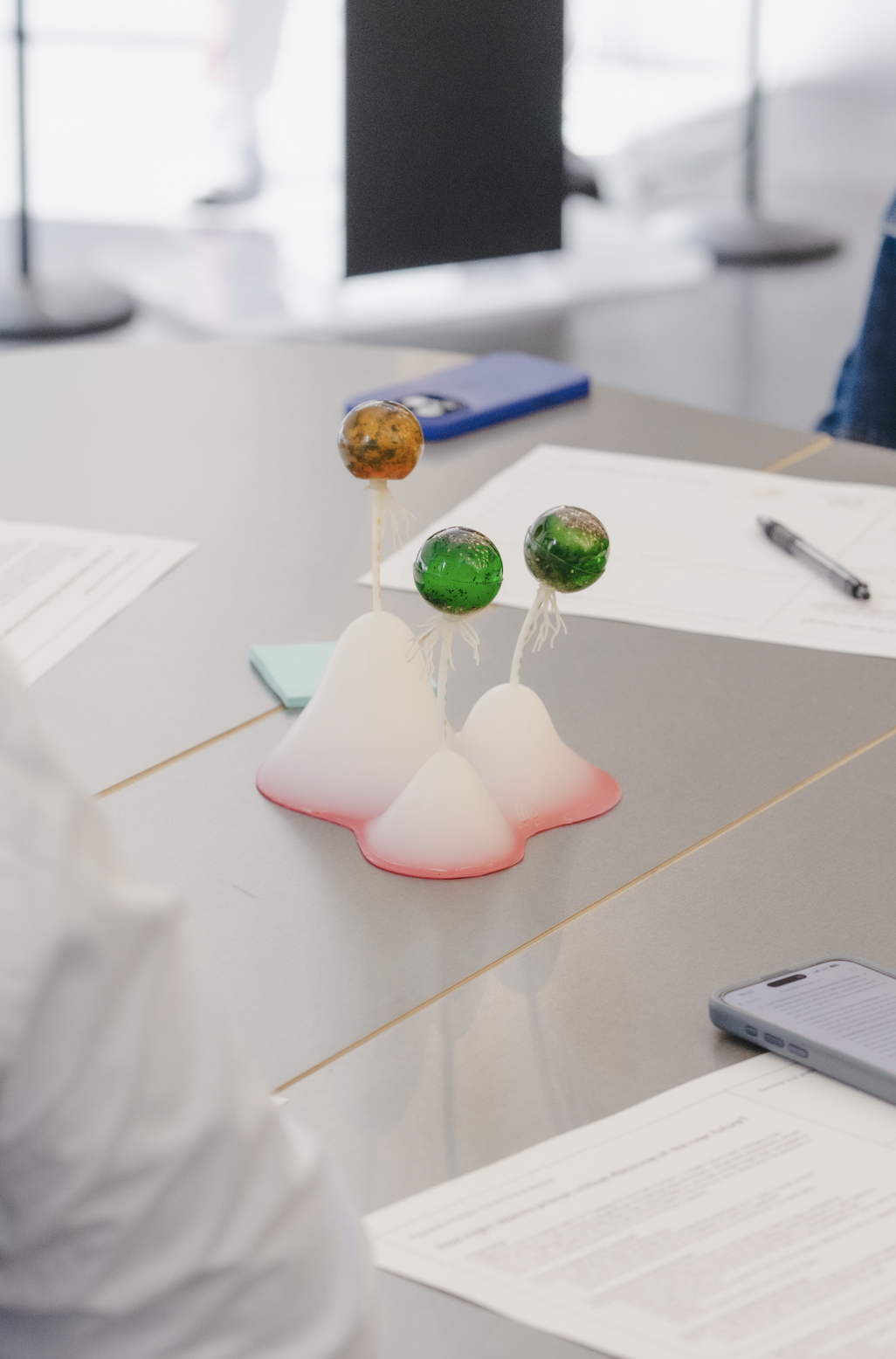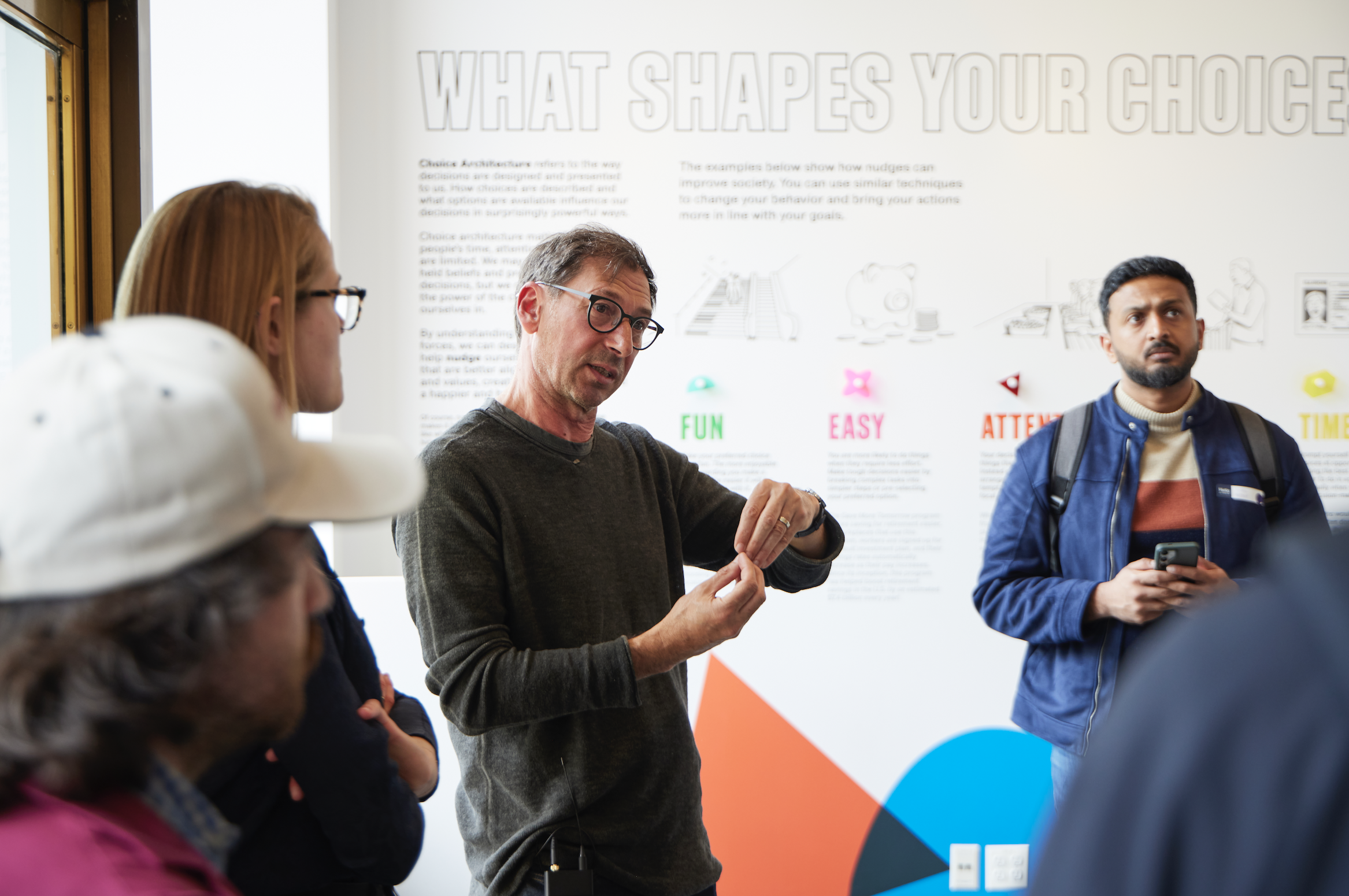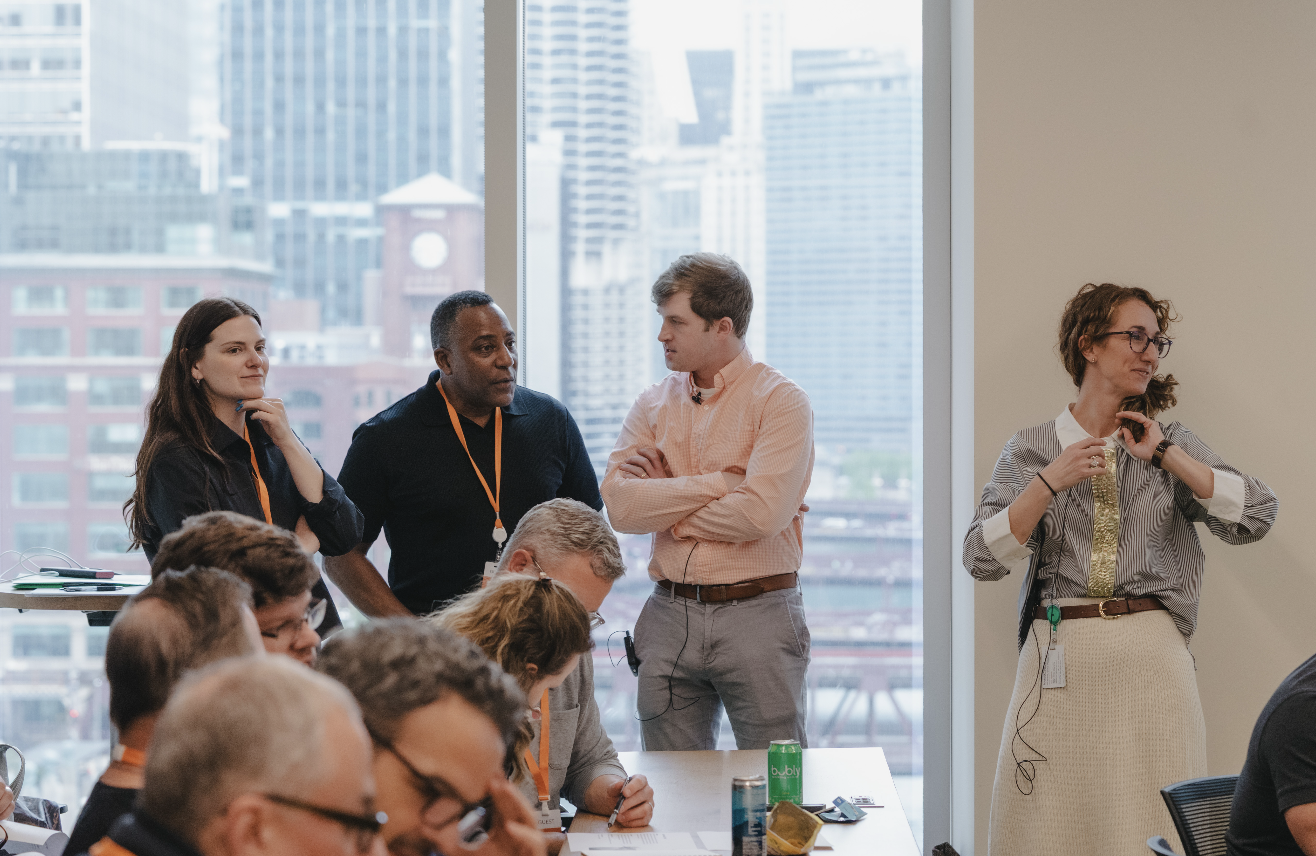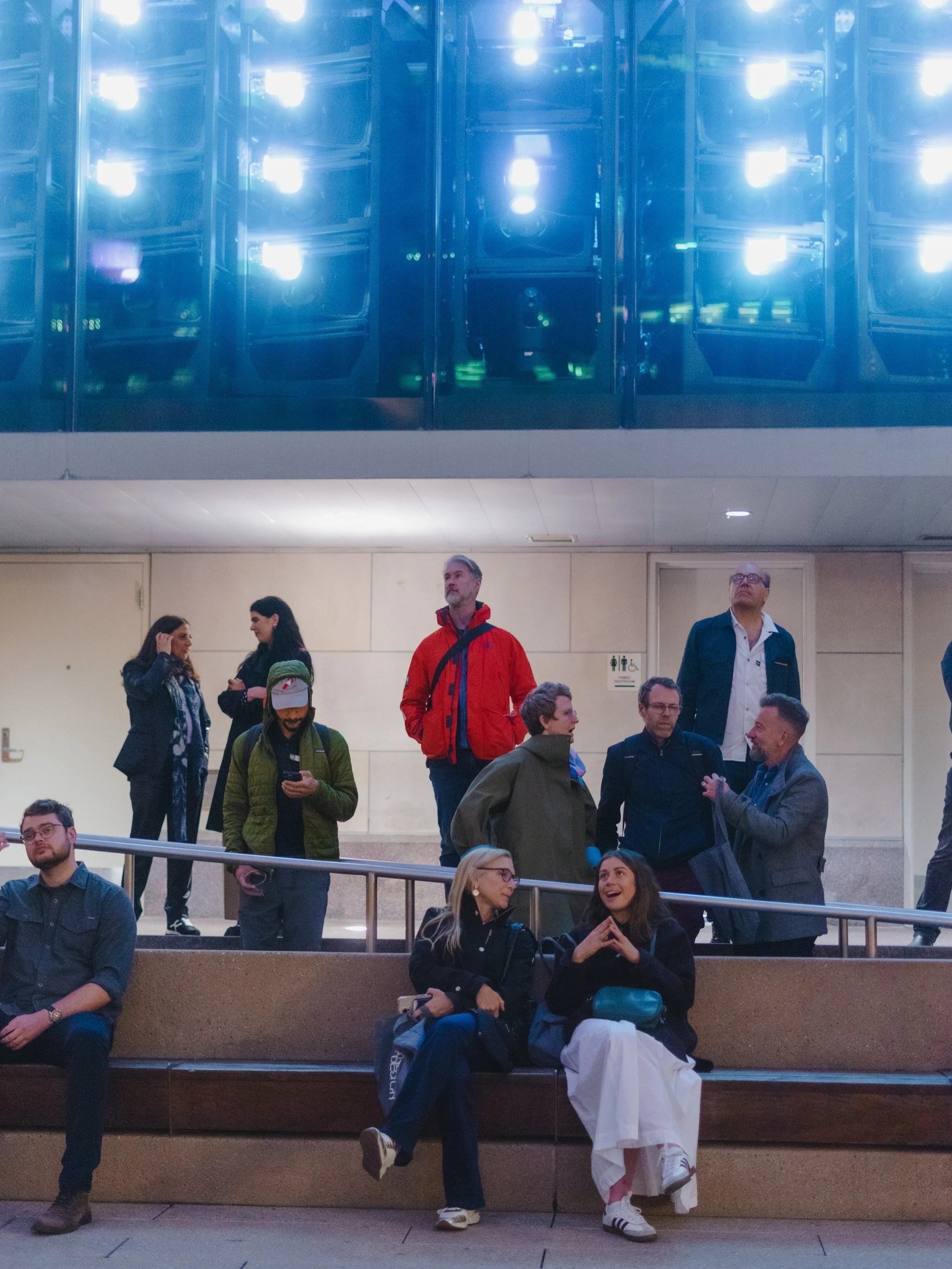RESPONSIBLE AI
Chicago
AI’s rapidly changing landscape is progressing largely without guardrails or checkpoints. The Institute of Design’s 2025 Shapeshift Summit convened global design, business, technology, and social impact leaders to shift AI conversations from functionality to impact. Murmur Ring kicked off the conference with an exclusive single-day immersion curated to uncover the real-world implications of emerging technologies.
The forty-person cohort included representation from tech leaders Google, Amazon, Salesforce, Microsoft, IBM, and varied widely by geographic location, including New Zealand, Japan, Taiwan, and Argentina. The cohort’s diversity of subject matter expertise included oceanography, democracy, digital strategy, sustainability, and more.




Existing inequities in housing
The National Public Housing Museum grounded our immersion in the reality of technology’s capacity to help or hinder social equity. Together we observed the intersection of our rental housing market, data discrimination, policies such as redlining, and emerging technologies, within the museum’s cutting-edge multimedia exhibition spaces.
Chicagoland Fair Housing Agency Open Communities joined us at the Museum to discuss their work and the ML-powered tool they are building in collaboration with Northwestern University graduate students to identify and report discriminatory housing advertisements. The adaptation of this tool will alleviate labor and allow the organization to focus on direct client service

Ongoing research, mass-market potential
Mindworks is a working laboratory with hands-on exhibitions dedicated to the science of human judgment. Alexander Todorov, PhD, The University of Chicago Booth School of Business’ Walter David "Bud" Fackler Distinguished Service Professor of Behavioral Science, shared how his research utilizes AI-generated models to visualize human decision-making.
The cohort considered the implications of such work becoming available in the marketplace. For instance, what might a facial recognition tool that visualizes qualities like beauty or trustworthiness do in the hands of nefarious entities?




Art and critical discourse on technocratic society
“Human enhancement technologies inhabit a critical space in the debate about technology displacing work. With many areas of the workforce becoming increasingly reliant on technology to gain competitive advantage, it is not merely about jobs being replaced by technology, but the implications of people actually becoming technology in order to remain employable.”
— Tim Parsons, Parsons & Charlesworth
We explored the most extreme what-if’s of our digital futures with speculative artists Parsons & Charlesworth. Featuring biohacking wearables such as a vest that provides an IV drip of vitamins while you work to enhance your performance, the artist duo’s Catalog for the Post-Human exhibits research-informed satirical products provoked conversations about the impact of enhancement and surveillance technologies in an increasingly contingent workforce.
The cohort personified fictional consumers seeking products to increase their physical and economic productivities and prototyped tech-enabled solutions that correspond to the artists’ existing faux-product line.






Corporate accountability and philanthropy
Salesforce’s Amy Guterman, Senior Director of Innovation, Philanthropy and teammates Estelle Winkleman, Director of Climate Philanthropy, and Andrew Irwin, Lead Demo Product Manager, led a concluding exercise to uncover real-world opportunities to identify and mitigate the risks of AI when developing products, services, and platforms for consumer use.
The team also shared Salesforce’s approach to climate-aware practices, data protection measures, and partnerships with nonprofits.




“The transformation that the current moment in AI portends is an acceleration and exaggeration of the asymmetries that exist today… [The immersion showed] how data and systems are asymmetric — they can be used for social injustice and, with intention, to remedy those injustices.”
— Ritik Dholakia, Studio Rodrigo
Cynthia Noble, Founder and Executive Director of ART on THE MART closed the day’s programming with an exclusive projection of Shana Moulton’s Wandering Inner Eyes and a discussion about the the role of emerging technologies in public art.
The cohort continues to share resources and devise:
How to use AI to uncover and understand unintended consequences of the technology
Philanthropic collaborations between their companies and nonprofit organization to enhance social impact through AI-powered tools and services
A manifesto for decision-makers to influence positive human impacts of tech
CREDITS
TONY BYNUM
Immersion Co-Host, Institute of Design Executive Academy
ALBERT SHUM
Immersion Co-Host
DYLAN CHANDLER
Photographer/Videographer
ROBERT KING
Photographer
LISA LEE
Executive Director, National Public Housing Museum
DOMINIC VOZ
Director of Fair Housing, Open Communities
SALONI PATEL
Graduate Student, Northwestern University
DEV AMBANI
Graduate Student, Northwestern University
ALEXANDER TODOROV
Walter David "Bud" Fackler Distinguished Service Professor of Behavioral Science, The University of Chicago Booth School of Business
ARLEIGH TRUESDALE
Associate Director, Science Communications, The University of Chicago Booth School of Business
MINDWORKS
CENTER FOR APPLIED ARTIFICIAL INTELLIGENCE
PARSONS & CHARLESWORTH
Independent Artist Collaborative
AMY GUTERMAN
Senior Director of Innovation, Philanthropy, Salesforce
ESTELLE WINKLEMAN
Director of Climate Philanthropy, Salesforce
ANDREW IRWIN
Lead Demo Product Manager, Salesforce
CYNTHIA NOBLE
Founding Executive Director, ART on theMART








